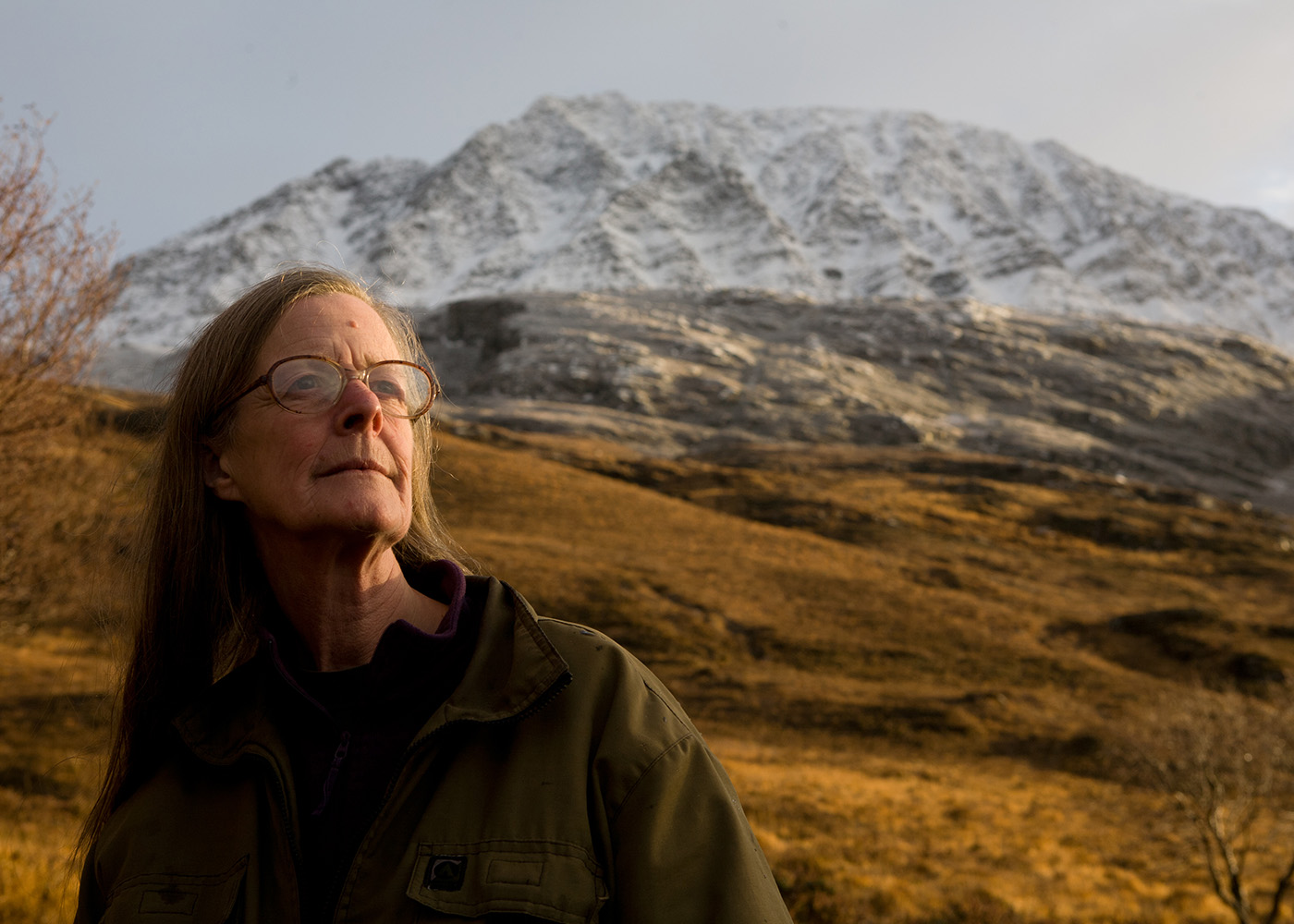
For many of us, the social isolation measures being imposed by Governments around the world in the fight against COVID-19 are difficult. While we practice what’s required to prevent the spread of the virus, isolation presents challenges of its own; how do we manage relationships remotely, stay motivated, improve productivity and crucially, maintain physical and mental wellbeing?
For renowned writer, Sara Maitland, this is not an unfamiliar lifestyle. For the past two decades Sara has been living alone, remotely – and joyfully pursuing her deep fascination with silence. Two of her books, How to Be Alone and A Book of Silence, are filled with experiences of personal growth from her time spent in solitude and we are delighted to share the following interview with her, written especially for The Arts Club community. Through her experience, we too can learn to utilise this period for reflection, development and personal progress.
What led you to live a life of solitude?
I didn’t really, it sort of happened. My marriage ended and I was living alone in a tiny rural village and I discovered how much I liked it. I had never lived alone before – I come from a very large, rather boisterous (and deeply affectionate) family and had never really had a chance to find out how well it suited me. In 2000 to significant things happened: a) I turned 50 and b) my youngest child left for University – so it seemed like a time to give it a proper go. I moved to a cottage on the moor above Stanhope in Co. Durham and started exploring solitude and silence. It was wonderful.
Tell us about your journey from this relatively remote cottage, to where you currently reside in Galloway.
The Stanhope house was not really ideal. It was too big and also too ‘tough’. It was over 1400ft above sea level and very exposed to the weather. (And also next to a large road on a steep hill so heavy lorries were forever grinding their gears.) In 2004 my brothers asked me if I would come home to Galloway in south west Scotland because my mother was beginning to fail and they needed more support. In exchange they lent me an adorable tiny cottage. When she died a year later, I started to look for somewhere like it (but more isolated) to live permanently. It was not easy to find! Then one day, really by chance I took a shortcut up an 18-mile single track road, into a magic place – a high moor (but only 700ft high!), huge, wild, lonely. And to me very beautiful. I bought a ruined farmhouse which had stood empty for over 50 years and rebuilt it to my own design. The nearest neighbour is over a mile away, I have enormous views and by luck, it is very near the Galloway Dark Sky Park, so when it is not cloudy I have glorious starry nights. I have lived here, alone (except for my dearly loved dog) since 2007.
What is the difference between solitude and loneliness?
Solitude is being alone and liking it. Loneliness is feeling alone (you can be lonely in a crowd) and not liking it.
Do you ever feel lonely?
No.
Do you sometimes crave love and companionship?
I do not ‘crave’ love because I have it. I have two fabulous children and the most adorable grandchild in the world (she lives in the USA). I also have deep friendships and my very loving, supportive crazy family. I don’t often crave ‘companionship’ but if I do there is always the telephone, and I go to Church every week, so I have that companionship. I do occasionally ‘crave’ sex – intimacy – but not enough to bother to do anything about it.
How do you combat boredom when it arises?
I very seldom find myself bored. If I do, I try to find something a bit difficult (not too difficult!) to keep the mind occupied. Reading something hard; trying to work a garden with soggy peat soil and high winds; learning a new skill (sewing, cooking, whatever); getting physically exhausted, usually through hill walking.
How can we come to enjoy solitude when circumstance has forced it upon us?
I haven’t the faintest idea! It’s a challenging time for many people and how we respond will vary from individual to individual. I’d suggest learning more about people who have enjoyed it – whether you go for Hermits (religious experience); solo adventurers or, more historically, people like lighthouse keepers or castaways. There are lots of biographies and stories; St Anthony. Bernard Moitessier and Tenzin Palmo are two figures I’ve found to be particularly inspiring.
What are some of the difficulties you encountered as you became accustomed to a life of solitude?
My biggest ‘difficulty’ was (and still is) inefficiency/ lack of forethought. If you run out of sugar (or anything else) it takes a lot of time, energy and a loss of solitude to replace it. Another was trying to explain to other people what I was trying to do. And why I liked it. It’s one of the reasons why I wrote A Book of Silence!
Despite the myriad platforms for connecting and communicating we have available to us, loneliness and suicide rates are reportedly higher than ever. Studies have shown that between 20 and 80 percent of adolescents report feeling lonely often, compared to 40 to 50 percent of the elderly population. What explains this phenomenon?
Don’t get me started! We say that being sociable is ‘natural’ but in fact put an enormous amount of time teaching children how to do it. “Share your toys,” “don’t bite Johnny”, “be polite to Aunt Susan”, “play nicely”, “games are more fun if you keep the rules”, “don’t spit your food out” – the list goes on! We teach children to talk, but we do absolutely nothing to teach them how to be alone. The majority of UK children have their own mobile by the time they are seven. “Go to your room” is one of the most popular punishments. Being alone is a punishment. What about “darling, you’ve been so helpful all afternoon, now you can go to your room and do what you want as a reward”?
If you ask older people for a happy memory of their childhood it is surprisingly often being alone, particularly outside ‘in nature’.
Now being ‘alone’ is presented as dangerous and frightening – though in fact the frequency of harm by strangers has not changed (except for 1996 – Dunblane, when the 17 killed children were NOT alone or unsupervised) since the 1950s, while the chance of harm in a family home remains far more frequent. If being alone is presented as both punishment and dangerous no wonder young people dread it and experience it as loneliness!
Many formative experiences for young people are born of social interactions and encounters. What would your advice be to a young person on the merits of solitude?
Give it a try. The amount of solitude that people function best with seems to vary enormously; it is worth exploring.
How connected are you through social media, the telephone and the internet?
I have a landline, but no mobile (because like 5,000,000 other UK inhabitants I live more than 2 miles from any signal. I got Skype when my granddaughter was born, because she lives in the USA and I and her parents would like her to be able to recognise me, but I use it with no one else. I use the internet for both work and personal contact – and also for the news, etc., because I have neither TV nor Radio. I don’t use any of the social media sites, but I have a website because my publisher wants me to. Though I last updated it in 2017.
The UK and indeed much of the world, have recently migrated their relationships with friends, family, loved ones and colleagues online. How do you nurture, maintain and grow these relationships when deprived of face-to-face contact?
Well we’ve not been trying it for long! I don’t see how we can know the answer for several years. I think it’s important to remember people maintained deep and nurturing relationships by post for centuries, so we know it can be done.
Faith plays an important part in your life, what does The Bible say about solitude?
Not a lot! We do know that Jesus ‘fasted for 40 days in the wilderness’ alone, and advised people to ‘go alone into their room and pray alone, in secret’. It was not really until the 3rd century that ‘hermitting’ got going.
What advice would you give to those self-isolating at the moment?
Keep a sharp eye out for the humour in this. Anticipate that it will be interesting if nothing else. Remember that being alone and being isolated are not the same thing. While your light switch still works you are not isolated, you are still within a huge complex social network.
Beyond the practical necessities, what could you not live without in solitude?
Cigarettes.
With thanks to Sara Maitland for sharing her personal experiences of isolation with us. More of her brilliant writing on living a life of solitude can be enjoyed in two of her books, both available to buy online at most book retailers.
Click here to buy How to be Alone or here for A Book of Silence from Waterstones.
Image credit: Adam Lee Photography.
